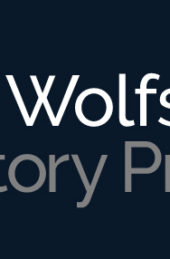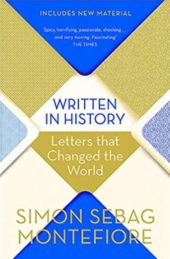What first attracted you to the period or periods you work in?
Each book has had a different genesis, although they overlap. The one about the Battle of Monte Cassino, was prompted by a book I was helping on as a freelance editor, called War of Nerves (by Ben Shephard), about the history of military psychiatry. It appeared that the battle scene at Cassino was that of a mass nervous breakdown. Researching that story collapsed all the heroic myths I’d grown up with about the Second World War.
The success of that book allowed me to branch out and take on other subjects, first the building of the Panama Canal (Panama Fever/Hell’s Gorge), then the rise and fall of the sugar empire in the British West Indies (The Sugar Barons). For both, the inspiration was the years in my teens spent living in Barbados, where my dad had been posted for his work. Once you’re used to the sunshine and beaches, you look around and see a very, very strange place with a quite extraordinary history. For one thing, I discovered that the American Panama Canal was actually built by Barbadians! (That said, I have to credit for introducing me to that story a series on the canal published in Look and Learn magazine in 1979 which had always stayed with me!)
The story of Willoughbyland grew out of the research for The Sugar Barons as well as deep interest in the seventeenth-century English revolution. Goldeneye, about Ian Fleming in Jamaica, was prompted through friendships made with Jamaicans and fascination with Jamaica’s transition to independence from the end of the war to 1962.
Can you tell us a little more about how you research? Has the process changed over the years?
There’s almost no beating the thrill – the goosebump moment – of discovering a fresh primary source that offers new insight. It’s the electrical energy that drives all the best history books. For me, for Monte Cassino, it was the hundreds of face-to-face interviews with surviving veterans; for Panama Fever, it was the collection of West Indian ‘digger’ accounts of building the canal, sent in for a competition run a decade later (a lot were pathetic pleas for material support); for Sugar Barons, it was the wills (that reveal so much), the sweat-dappled letters and diaries and the utterly horrifying inventories of enslaved Africans.
I remember, back in the day, spending a long time at the Colindale newspaper archive. Astonishingly, they had an almost complete set of the Panama Star and Herald newspaper from the 1880s, the time of the disastrous French effort at building a canal. Now the archive is accessible on the British Library’s central site, and technological advance has meant much is online, or you can email yourself copies of articles. In general, of course, so much material – archives, books, photographs – is now available online. But newly-accessible newspapers and contemporary magazines offer something special – not just the ‘first draft of history’, but also how people thought about events at the time. Even the adverts are a rich source of insight and information (and some quite hair-raising patent medicines).
The common phrase is that history is written by the victors. Do you think this is true?
I see this as the never-ending battle against ‘source bias’. Maybe you want to write about the interaction of a pre- or semi-literate society with European or American missionaries, traders, soldiers or imperial officials? How can you tell a balanced story when the records of the voices of the indigenous and colonised are non-existent, or, at best, mediated through a western prism? It’s a huge challenge.
Are there any historians who helped shaped your career? Similarly, can you recommend three history books which budding historians should read?
Until my mid-twenties, I hardly ever read non-fiction for pleasure. It was strictly novels. Then a publishing friend put a copy in my hand of Gitta Sereny’s Albert Speer: his Battle with Truth, and my reading habits were transformed. It was one of the most vivid and arresting books I’d ever read.
When my 18-year-old god-daughter secured a place to read history at a very smart university, to celebrate I gave her The Proud Tower by Barbara Tuchman and V.S. Naipaul’s The Loss of El Dorado. The Naipaul was one of the few non-fiction books I read as a teenager, and of course feeds strongly into my Willoughbyland about Surinam, where Raleigh thought El Dorado was to be found, just round the next bend of river or over that hill. Both books are, of course beautifully written.
If you could meet any figure from history, who would it be and why?
All three of our children are named after historical ‘heroes’. Oliver, Thomas and Emily – you work it out. So, I’d be tempted to talk to them and many other ‘big names’. But I have to go instead for meeting one of the countless millions unrecorded by our history: the enslaved African in Barbados, the indentured Tamil woman picking tea in Ceylon, the Pacific Islander caught between the whaler, the missionary and the paternalistic imperial official. Any of those would be proper gold dust, and no doubt many of our assumptions would be overturned.
Also, if you could witness any event throughout history, what would it be?
It would have been quite something to have been present in William Knibb’s Baptist Church in Falmouth, Jamaica on the night of 31 July 1838. A coffin inscribed with ‘Colonial Slavery’ was loaded with an iron punishment collar, a whip and chains. ‘The hour is at hand!’ Knibb called out from his pulpit, pointing to a clock on the wall. ‘The monster is dead!’ The congregation burst into cheers and embraced each other. ‘Never, never did I hear such a sound,’ Knibb wrote. ‘The winds of freedom appeared to have been let loose. The very building shook at the strange yet sacred joy.’
If you could give a piece of advice to your younger self, either as a student or when you first started out as a writer, what would it be?
Get a proper/easier job!






